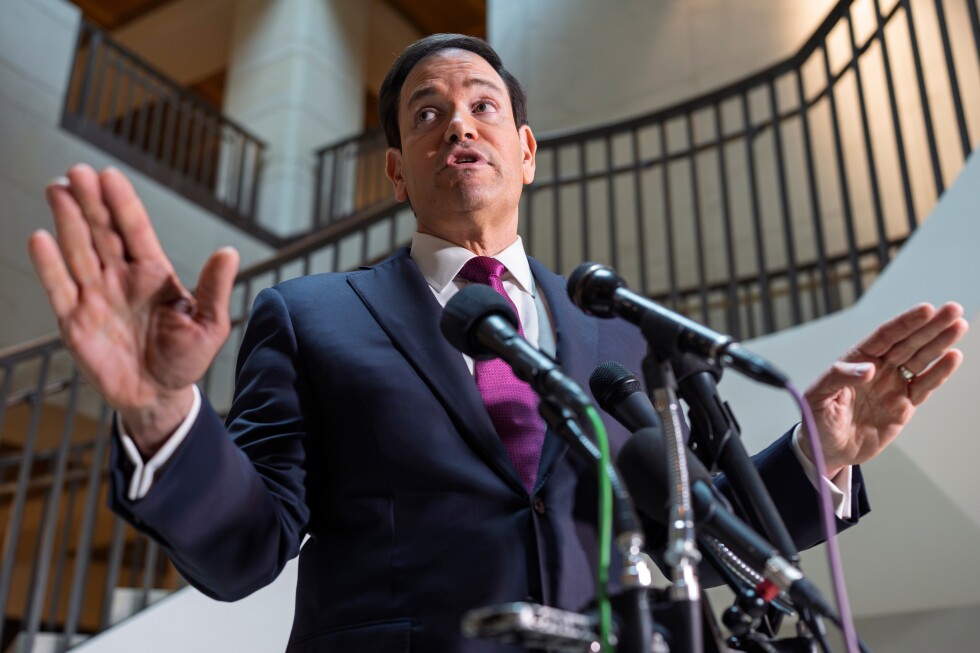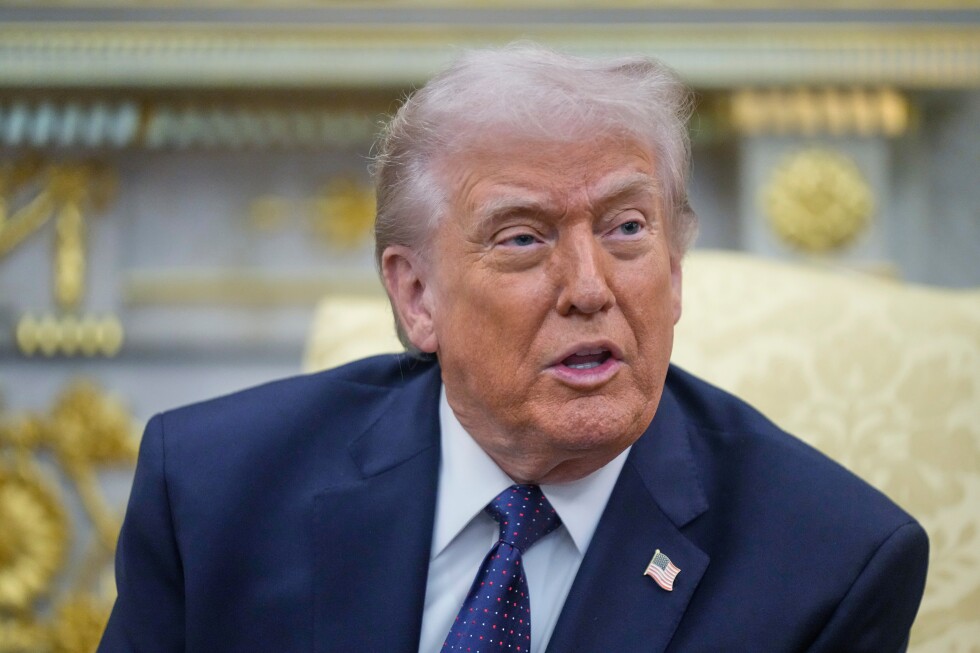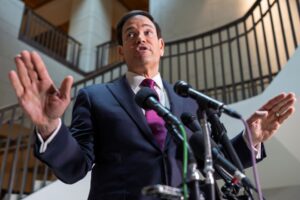The Dictatorship
My bountiful backyard garden is a scary Thanksgiving sight

When I picked a brilliant red cherry tomato off my backyard vine and enjoyed the burst of sweet flavor, I knew it was a guilty pleasure. That’s because it was Nov. 20, and I live in Cambridge, Massachusetts. The tomato I tasted is a cherry bomb of climate change.
The internet is peppered with reports from places like Milwaukee, Chicago and Detroit of peppers and tomatoes still growing on the cusp of Thanksgiving.
I’m not the only one feeling this. The internet is peppered with reports from places like Milwaukee, Chicago and Detroit of peppers and tomatoes still growing on the cusp of Thanksgiving. A radio personality in New Jersey posted pictures of bell peppers he picked Nov. 18, a late-season harvest that he said “rings alarm bells.”
New England’s November Garden of Eden has alarmed me for some time. In December 2001, I wrote a column in The Boston Globe about my Thanksgiving Day backyard harvest of cilantro, jalapeño peppers and eggplant. I gave it a tongue-in-cheek dateline of “Atlanta, Mass.,” as Massachusetts was projected to have the climate of Richmond, Virginia, or Atlanta by 2090. I doubted back then that anyone would be freaked out by the freakish harvest “when most of us like it warm.”
It was also the first of Republican President George W. Bush’s eight years in office. By thenhis administration had already rejected the Kyoto climate treaty. It would eventually censor the Environmental Protection Agency from directly tying warming to human activities and from warning the public how fast the planet was heating up. The oil man turned president kept the nation out of the global fight against climate change with the claim that he first needed to see “sound science.”
The years since have been a yo-yo. President Barack Obama signed the Paris climate accords, only for President Donald Trump to withdraw from them. President Joe Biden rejoined the treaty, but Trump getting elected again all but assures another withdrawal from the global stage, even though the United States is, by far, the world’s largest emitter per-capita of the carbon dioxide emissions fueling global warming.
And regardless of whether we do or don’t sign international climate treaties, our commitment to the global fight against climate change falls insultingly short of the need.
At the just-concluded COP29 in Azerbaijan, the world’s richest nations, cowed by the smothering smog of nearly 1,800 oil and gas lobbyists, offered a paltry $300 billion a year in climate finance to help developing nations withstand the damage, death and impoverishment from climate change. What Biden hailed as “a historic commitment” looks more like a continuing betrayal. The Independent High-Level Expert Group on Climate Finance said in 2022 that the contribution should be $1 trillion a year.
All the while, the cherry tomato bombs keep going off.
Last year was Earth’s warmest year on recordand this year is on track to be hotter still, according to the World Meteorological Organization. And this month in the Northeast, a historic drought set us up for a record number of November wildfires and/or record numbers of wildfire red flag warnings.
In Massachusetts, wildfires were burning from the Blue Hills recreational lands south of Boston all the way out to Great Barrington in the Berkshires. On Nov. 9 in New York City, I smelled smoke in the Bronx and Manhattan. There were brushfires in local city parks, including Brooklyn’s Prospect Park, and fires across the Hudson River in New Jersey.
Referring to the bad smell, Desi Yvette, a 36-year-old Brooklyn resident, told The New York Times, “I thought maybe there was a fire nearby, but I didn’t hear any sirens.”
You won’t hear any sirens from the federal level when Trump returns to the Oval Office. Trump’s pick to run the Energy Department, fracking executive Chris Wright, says, “There is no climate crisis” and that claims there’s been “no increase in the frequency or intensity of hurricanes, tornadoes, droughts or floods despite endless fear mongering of the media, politicians and activists.”
Trump’s pick to run the Energy Department, fracking executive Chris Wright, says, “There is no climate crisis.”
To the contrary, last year’s Fifth National Climate Assessmentassembled by scientists across the government, said extreme events are “becoming more frequent and severe.” Though the average number of tornadoes has remained stable, evidence is mounting that they’re increasing in power and becoming more common in the eastern United States.
According to the National Oceanic and Atmospheric Administration, the U.S. last year had a record 28 weather and climate disasters that cost at least $1 billion. This year is already in second place, at 24. In the 1980s, the nation averaged 3.3 such events a year, in adjusted dollars.
In announcing North Dakota Gov. Doug Burgum to run the Interior Department, Trump boasted in an email that regulatory actions on public lands will be driven by a “‘DRILL BABY DRILL’ approach.” In picking former Rep. Lee Zeldin of New York to run the EPA, Trump said Zeldin will make “swift deregulatory decisions” that will “unleash the power of American businesses.”
Trump certainly took the leash off oil, gas and chemical companies in his first term, rolling back more than 100 environmental regulations. He packed the Supreme Court with justices who continued to defang the EPA tooth by tooth even after he was booted from office in 2020.
The high court, with Justice Samuel Alito leading the chargedramatically limited the authority of the agency from regulating carbon emissions from power plants, blocked a “good neighbor” rule meant to stem the spewing of fossil fuel emissions across state borders and ended the “Chevron” deference to government agencies and their scientists and career analysts in disputes where the law is ambiguous.
The mentality behind the rulings is summed up by a speech Alito gave to the Claremont Institute in 2017. “Carbon dioxide is not a pollutant,” Alito said. “Carbon dioxide is not harmful to ordinary things, to human beings, or to animals, or to plants. It’s actually needed for plant growth.”
That gets back to my tomatoes. According to the EPAthe carbon dioxide in our atmosphere has helped lengthen growing days in the contiguous 48 states by more than two weeks since the beginning of the 20th century, with most of the rise beginning in the 1970s.
Like the serpent in the Garden of Eden, Alito would say take a bite and be happy. Never mind that the heavenly taste is due to the hell of global warming stripping the Earth naked.
Derrick Z. Jackson
Derrick Z. Jackson is a Union of Concerned Scientists fellow in climate and energy at the Center for Science and Democracy. A former columnist for The Boston Globe, he’s the co-author of “Project Puffin: The Improbable Quest to Bring a Beloved Seabird Back to Egg Rock.”
The Dictatorship
TENSIONS FLARE ON HILL

WASHINGTON (AP) — Tensions flared as questions mounted at the U.S. Capitol on Tuesday over the Trump administration’s shifting rationale for war with Iran as lawmakers demand answers over the strategy, exit plan and costs to Americans in lives and dollars for what is quickly becoming a widening Middle East conflict.
Trump officials made their case at the Capitol during a second day of closed-door briefings, this time with all members of the House and Senate ahead of a looming war powers resolution vote intended to restrict Trump’s ability to continue the joint U.S.-Israel campaign against Iran.
“The president determined we were not going to get hit first. It’s that simple,” Secretary of State Marco Rubio said in a testy exchange with reporters at the Capitol.
Rubio pushed back on his own suggestion a day earlier that Trump decided to strike Iran because Israel was ready to act first. Instead, he said Trump made the decision to attack this past weekend because it presented a unique opportunity with maximum chance for success.
“There is no way in the world that this terroristic regime was going to get nuclear weapons, not under Donald Trump’s watch,” he said.
The sudden pivot to a U.S. wartime footing has disrupted the political and policy agenda on Capitol Hill and raised uneasy questions about the risks ahead for a prolonged conflict and regime change after the killing of Iran’s Supreme Leader Ayatollah Ali Khamenei. At least six U.S. military service personnel have died so far.
The situation has intensified the push in Congress for the war powers resolution — among the most consequential votes a lawmaker can take, with the war well underway — as administration officials are telling lawmakers they will likely need supplemental funds to pay for the conflict. It comes at the start of a highly competitive midterm election season that will test Trump’s slim GOP control of Congress.
Senate Democratic Leader Chuck Schumer left the closed hearing, saying he was concerned about “mission creep” in a long war.
Defense Secretary Pete Hegseth arrives for a briefing for lawmakers on Iran at a secure room in the basement of the Capitol in Washington, Tuesday, March 3, 2026. (AP Photo/J. Scott Applewhite)
Defense Secretary Pete Hegseth arrives for a briefing for lawmakers on Iran at a secure room in the basement of the Capitol in Washington, Tuesday, March 3, 2026. (AP Photo/J. Scott Applewhite)
Senators demand answers, and some cheer Trump on
Senators spent the morning grilling Trump officials during an Armed Services Committee hearing over Rubio’s claim Monday that the president, believing that Israel was ready to act, decided it was better for the U.S. to launch a preemptive strike to prevent Iran’s potential retaliation on American military bases and interests abroad.
Sen. Angus King, the independent from Maine, said it’s “very disturbing” that Trump took the U.S. to war because Israel’s Prime Minister Benjamin Netanyahu wanted to bomb Iran. Past U.S. presidents, he said, “have consistently said, ‘No.’”
Defense official Elbridge Colby told senators the president directed the military campaign to destroy Iranian missiles and deny the country nuclear weapons.
Trump himself disputed the idea that Israel had forced his hand. In his own Oval Office remarks, he said, “I might might have forced their hand.”
Sen. Markwayne Mullin, a Trump ally from Oklahoma, said the president “did the world a favor.”
“How about we say, ‘Thank you, Mr. President, for finally getting rid of this nuisance,’” he said.
But Sen. Elizabeth Warren, D-Mass., demanded to know how this fits into Trump’s “America First” campaign promise not to commit U.S. troops to protracted military campaigns abroad.
Trump has suggested the war could drag on, and has not ruled out sending American troops into Iran.
“’America First’ and ‘peace through strength’ are served by rolling back — as the military campaign is designed to do — the threats posed,” Colby responded. “This is certainly not nation-building. This is not going to be endless.”
Senate Majority Leader John Thune, R-S.D., arrives for a briefing for Senators on Iran at a secure room in the basement of the Capitol in Washington, Tuesday, March 3, 2026. (AP Photo/J. Scott Applewhite)
Senate Intelligence Committee Sen. Mark Warner, D-Va., speaks to reporters following a House and Senate Intelligence Committees briefing about the war in Iran at the Capitol in Washington, Monday, March 2, 2026. (AP Photo/Manuel Balce Ceneta)
What’s next for the Iranian regime and its people
Questions are growing over who will lead Iran after the death of Khamenei, who has ruled the country for decades, and worries of a leadership vacuum that creates unrest.
Democrats warned against sending U.S. military troops into Iran after more than two decades of war in Iraq and Afghanistan in the aftermath of the Sept. 11, 2001, attacks.
“I am more fearful than ever we may be putting boots on the ground,” said Sen. Richard Blumenthal, D-Conn., after the closed briefing.
And while House Republicans applauded in support of the Trump administration’s operations, warning signs flared.
Rep. Chip Roy, R-Texas, said he supports the operation, for now. “My flag starts going up, the longer this goes, my flag starts going up, the more there’s boots on the ground,” he said.
Many lawmakers expressed concern over the number of Americans calling their offices seeking help evacuating from the region as the war spreads. “It’s getting worse, not better,” said Rep. Jason Crow, D-Colo., a former Army Ranger.
Trump, in calling for Iranians to seize this opportunity to take back their country, has acknowledged the uncertainty.
“Most of the people we had in mind are dead,” Trump said Tuesday. He also panned the idea of elevating Reza Pahlavi, the exiled crown prince of Iran’s last shah, to take over in Iran.
Republicans insist it’s not for the Americans to decide the future of Iran.
“That’s going to be largely up to the Iranian people,” said Senate Majority Leader John Thune, a Republican.
House Speaker Mike Johnson said flatly, “We have no ability to get into the nation-building business.”
President Donald Trump departs after a Medal of Honor ceremony in the East Room of the White House, Monday, March 2, 2026, in Washington. (AP Photo/Alex Brandon)
President Donald Trump departs after a Medal of Honor ceremony in the East Room of the White House, Monday, March 2, 2026, in Washington. (AP Photo/Alex Brandon)
War powers resolutions become a consequential vote
Both the House and Senate are preparing to vote on war powers resolutions that would restrain Trump’s ability to continue waging war on Iran without approval from Congress.
Under the U.S. Constitution, it’s up to Congress, not the president, to decide when the country goes to war. But lawmakers often shirk that duty, enabling the executive branch to amass more power to send the military into combat without congressional approval.
“Why are we spending billions of dollars to bomb Iran?” said House Democratic Leader Hakeem Jeffries, who said there would be strong support from Democrats for the resolution.
But Johnson has said it would be “frightening” and “dangerous” to tie the president’s hands at this time, when the U.S. is already engaged in combat.
Other lawmakers have suggested that if Congress does not vote to restrain Trump, it should next consider an Authorization of the Use of Military Force, which would require lawmakers to go on record with affirmative support for the Iran operation.
“The reason why there’s so much consternation on our side is because President Trump has not given us a clear reason why he is in Iran,” said Sen. Kirsten Gillibrand, D-N.Y. “If he wants to declare war on Iran, that is the job and responsibility of Congress under the Constitution.”
Former President George W. Bush sought, and received, authorization from Congress to launch the post-9/11 wars.
___
Associated Press writers Stephen Groves and Mary Clare Jalonick contributed to this report.
The Dictatorship
Trump threatens to cut off trade with Spain

WASHINGTON (AP) — President Donald Trump on Tuesday threatened to end trade with Spainciting a lack of support over the U.S. and Israeli attacks on Iran and the European nation’s resistance to increasing its NATO spending.
“We’re going to cut off all trade with Spain,” Trump told reporters during an Oval Office meeting with German Chancellor Friedrich Merz. “We don’t want anything to do with Spain.”
The U.S. president’s comments came a day after Spanish Foreign Minister José Manuel Albares said his country would not allow the U.S. to use jointly operated bases in southern Spain in any strikes not covered by the United Nations’ charter. Albares noted that the military bases in Spain were not used in the weekend attack on Iran.
Trump said despite Spain’s refusal “we could use their base if we want. We could just fly in and use it. Nobody’s going to tell us not to use it, but we don’t have to.”
It is unclear how Trump would cut off trade with Spain, given that Spain is under the umbrella of the European Union. The EU negotiates trade deals on behalf of all 27 member countries.
“If the U.S. administration wishes to review the trade agreement, it must do so respecting the autonomy of private companies, international law, and bilateral agreements between the European Union and the United States,” a spokesperson from Spanish Prime Minister Pedro Sánchez’s office said Tuesday.
The EU said it expects the Trump administration to honor a trade deal struck with the 27-nation bloc in Scotland last year after months of economic uncertainty over Trump’s tariff blitzkrieg.
“The Commission will always ensure that the interests of the European Union are fully protected,” said European Commission spokesperson Olof Gill.
It was just the latest instance of the president wielding the threat of tariffs or trade embargoes as a punishment and came on the heels of a Supreme Court decision that struck down Trump’s far-reaching global tariffs. While the court said that the International Emergency Economic Powers Act does not authorize the president to unilaterally impose sweeping tariffs, Trump now maintains that the court allows him to instead impose full-scale embargoes on other nations of his choosing.
Trump also complained anew Tuesday about Spain’s decision last year to back out of NATO’s 5% defense spending target. At the time, Spain said it could reach its military capabilities by spending 2.1% of its GDP, a move that Trump roundly criticized and responded to with tariff threats as well.
Spain, Trump said, is “the only country that in NATO would not agree to go up to 5%” in NATO spending. “I don’t think they agreed to go up to anything. They wanted to keep it at 2% and they don’t pay the 2%.”
Merz noted that Trump was correct and said, “We are trying to convince them that this is a part of our common security, that we all have to comply with this.”
Spain defended its position Tuesday, saying it is “a key member of NATO, fulfilling its commitments and making a significant contribution to the defense of European territory,” the spokesperson in Sánchez’s office said.
During the Oval Office meeting, Trump turned to U.S. Treasury Secretary Scott Bessent for his opinion on the president’s embargo authority.
Bessent said, “I agree that the Supreme Court reaffirmed your ability to implement an embargo.” Bessent added that the U.S. Trade Representative and Commerce Department would “begin investigations and we’ll move forward with those.”
A representative from the U.S. Treasury Department did not respond to a request from The Associated Press for additional comment.
Sánchez has been critical of the U.S. and Israeli attacks on Iran, calling it an “unjustifiable” and “dangerous” military intervention. His government has demanded an immediate de-escalation and dialogue and also condemned Iran’s strikes across the region.
Trump said, “Spain has absolutely nothing that we need other than great people. They have great people, but they don’t have great leadership.”
Spain’s position on the use of U.S. bases in its territory marks the latest flare-up in its relationship with the Trump administration. Under Sánchez, Europe’s last major progressive leader, Spain was also an outspoken critic of Israel’s war in Gaza.
___
Naishadham reported from Madrid. AP journalist Sam McNeil in Brussels contributed.
The Dictatorship
The Latest: US and Israel attack Iran as Trump says US begins ‘major combat operations’

Rice secures 80-74 win over Temple
Anthony’s 16 help Iona beat Manhattan 69-65
Folefac scores 23 as Siena beats Rider 76-61
SnoCountry Mountain Reports
Gulf States Sportswatch Daily Listings
Quinnipiac wins 67-63 against Canisius
-

 The Dictatorship1 year ago
The Dictatorship1 year agoLuigi Mangione acknowledges public support in first official statement since arrest
-

 Politics1 year ago
Politics1 year agoFormer ‘Squad’ members launching ‘Bowman and Bush’ YouTube show
-

 Politics1 year ago
Politics1 year agoBlue Light News’s Editorial Director Ryan Hutchins speaks at Blue Light News’s 2025 Governors Summit
-

 The Dictatorship6 months ago
The Dictatorship6 months agoMike Johnson sums up the GOP’s arrogant position on military occupation with two words
-

 Politics1 year ago
Politics1 year agoFormer Kentucky AG Daniel Cameron launches Senate bid
-

 The Dictatorship1 year ago
The Dictatorship1 year agoPete Hegseth’s tenure at the Pentagon goes from bad to worse
-
Uncategorized1 year ago
Bob Good to step down as Freedom Caucus chair this week
-

 Politics11 months ago
Politics11 months agoDemocrat challenging Joni Ernst: I want to ‘tear down’ party, ‘build it back up’


